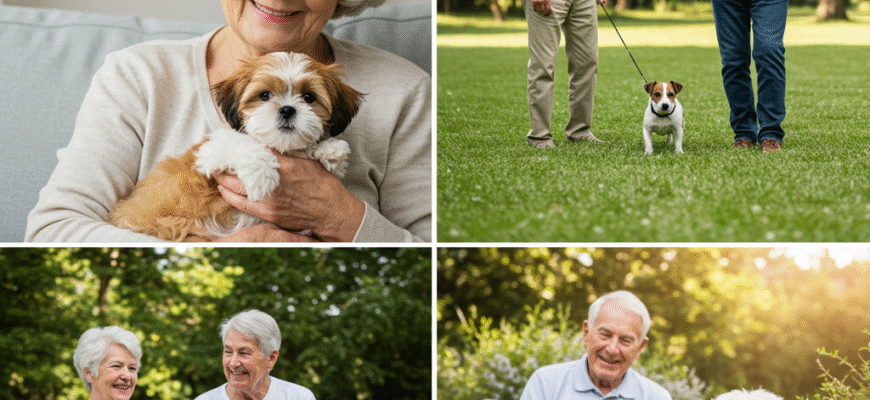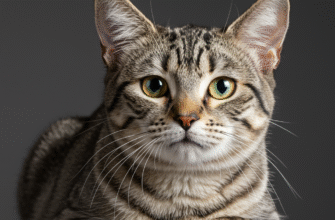Content
Why Small Dogs Can Be Great for Seniors
Smaller dogs offer several practical advantages. They are generally easier to handle physically – lifting them if necessary, managing them on a leash, and even bathing them can be less strenuous. Their food portions are smaller, potentially making them less expensive to feed. Many small breeds don’t require extensive, high-intensity exercise; often, a couple of short walks per day and some indoor playtime suffice. This can align well with seniors who may have mobility limitations or prefer a less demanding exercise schedule. Furthermore, many small breeds were specifically developed for companionship, resulting in affectionate temperaments and a strong desire to be close to their humans.Key Factors to Consider
Before falling in love with a particular fluffy face, it’s wise to think about a few key aspects:- Temperament: Look for breeds known for being calm, gentle, and affectionate. While all dogs need training and socialization, some breeds are naturally more laid-back or eager to please than others. Avoid breeds known for excessive barking or high anxiety if a quiet environment is preferred.
- Energy Level: This is crucial. A dog needing hours of running daily won’t suit a senior seeking a quiet lap warmer. Be realistic about the amount of exercise you can consistently provide. Look for breeds described as having low to moderate energy needs.
- Grooming: Coats vary widely! Short-haired breeds like Pugs require minimal brushing, while long-haired beauties like Shih Tzus or Poodles need regular, sometimes professional, grooming to prevent matting. Consider the time, physical ability, and potential cost associated with grooming needs. Low-shedding breeds are often preferred but usually require more coat maintenance.
- Trainability: While most small dogs are intelligent, some are more independent or stubborn than others. Breeds known for being eager to please can be easier to train for basic commands and house rules, which is important for a harmonious living situation.
- Potential Health Considerations: Every breed has potential predispositions to certain health issues. While not a deterrent, it’s good to be aware of common concerns for a chosen breed (e.g., dental issues in tiny breeds, breathing difficulties in flat-faced breeds) and discuss preventative care with a veterinarian.
Top Small Dog Breeds for Companion Seekers
Cavalier King Charles Spaniel
Often described as the ultimate companion dog, the Cavalier is gentle, affectionate, and remarkably adaptable. They tend to mirror their owner’s activity level – happy to go for a leisurely stroll but equally content snuggling on the sofa. They are generally good-natured with people and other animals. Their beautiful silky coats require regular brushing to prevent tangles, but their eagerness to please makes them relatively easy to train. They thrive on human companionship and don’t do well if left alone for very long periods.Bichon Frise
These fluffy white dogs are bundles of cheerfulness and charm. Bichons are playful and enjoy short bursts of activity followed by cuddle time. They are known for being good-natured and sociable. A significant advantage is their low-shedding coat, which makes them a popular choice for people with allergies. However, this coat requires diligent grooming, including regular brushing and professional trimming every 4-6 weeks, to prevent mats. They are intelligent and generally respond well to positive reinforcement training.Poodle (Toy or Miniature)
Poodles consistently rank high in intelligence, making them highly trainable companions. Both the Toy and Miniature varieties are excellent choices for seniors. They are lively and enjoy walks and playtime but are also content indoors. Like the Bichon, Poodles have a hypoallergenic, non-shedding coat, but this necessitates regular grooming to keep it clipped short or maintained properly. Neglecting their coat care can lead quickly to uncomfortable matting. They form strong bonds with their owners and enjoy being part of the family’s activities.Shih Tzu
Bred for centuries to be cherished lap dogs, Shih Tzus excel at providing companionship. They are typically outgoing, affectionate, and adaptable to apartment living. Their exercise needs are relatively low; a short daily walk and some indoor play are usually sufficient. Their long, flowing coat is beautiful but requires significant grooming – daily brushing is often necessary to prevent tangles, along with regular professional trimming. Keeping their coat in a shorter “puppy cut” can reduce daily maintenance. They have a sweet disposition but can sometimes have a stubborn streak during training.Pug
With their wrinkled faces and expressive eyes, Pugs are undeniably charming clowns. They are loving, playful, and generally have lower exercise requirements, making them suitable for less active households. They adore being close to their people. Their short coat requires minimal grooming, mainly regular brushing to manage shedding. Potential owners should be aware of health considerations common in flat-faced (brachycephalic) breeds, such as potential breathing difficulties, especially in heat or during strenuous exercise, and the need for regular cleaning of facial wrinkles to prevent infections. Despite this, their amiable personality makes them beloved companions.French Bulldog
Frenchies have soared in popularity due to their playful yet relatively low-energy nature and distinct appearance. They are adaptable to apartment life and don’t require a huge amount of exercise – short walks are usually enough. They are affectionate companions who enjoy being lap dogs. Like Pugs, they have a short, easy-care coat but are also a brachycephalic breed with potential health concerns related to breathing and temperature regulation. Their charming, somewhat comical personality makes them endearing pets for many.Matching Energy is Key. Before selecting a breed, honestly assess your own daily activity level and lifestyle. Ensure the dog’s typical energy needs align with what you can comfortably provide daily. A mismatch in energy can lead to frustration for both you and your potential companion. Remember that even low-energy dogs require regular, gentle exercise for their physical and mental well-being.









